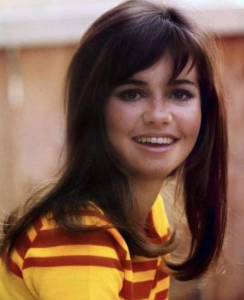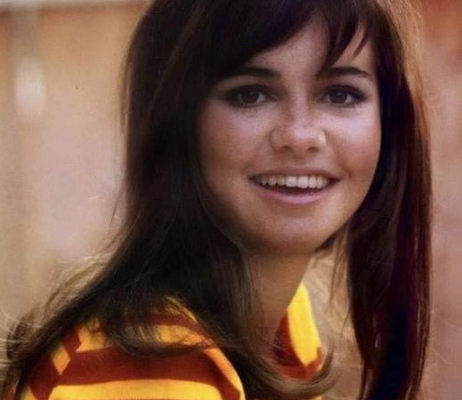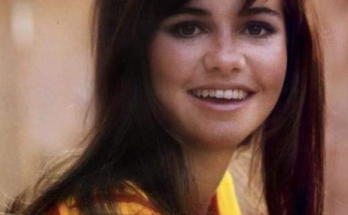
Sally Field, Now 76 Years Old, Has Never Had Plastic Surgery Despite Facing Ageism in Hollywood
In a town where youth is currency and imperfections are often treated like flaws to be fixed, Sally Field has remained unwavering in her belief that aging is a privilege—not a problem. Now 76 years old, the beloved actress continues to captivate audiences not only with her immense talent but with her refusal to bow to Hollywood’s relentless pressure to stay forever young. Her stance against plastic surgery has made her an emblem of authenticity in an industry built on reinvention, retouching, and unrealistic standards.
Sally Field’s career, which spans more than five decades, is a testament to her resilience. From her early days as America’s sweetheart in Gidget and The Flying Nun to her powerhouse performances in films like Norma Rae, Steel Magnolias, and Forrest Gump, Field has consistently proven that she is far more than a pretty face. She is a storyteller, a fighter, a woman who has navigated both triumph and heartbreak under the unblinking glare of the public eye.
But beyond her Oscar-winning performances, it is her grounded, honest approach to aging that has set her apart. While countless celebrities quietly—or not so quietly—embrace cosmetic tweaks to maintain their marketability, Field has stood firm in her choice to age naturally. This decision has not always been easy. Over the years, tabloids, commentators, and even Hollywood colleagues have made age the focal point of her public identity. Yet, she has consistently refused to let those voices dictate how she feels about herself.
In interviews, Field has spoken openly about the pressures she has faced. Early in her career, she was dismissed by casting directors who thought she was “too cute” or “too sweet” to take on serious roles. Later, as she grew older, she encountered a different kind of bias: the assumption that women past a certain age should fade away quietly or drastically alter their appearance to remain relevant. Hollywood’s obsession with youth has created an environment where aging naturally is seen as almost rebellious.
But Field never subscribed to that mindset. She has often said that she wants her face to reflect the life she has lived—every laugh, every worry, every moment of joy, loss, and growth. To her, wrinkles are not signs of decline; they are chapters of a story still being written.
Her outlook resonates with millions of women who see themselves not in the flawless images plastered across magazines but in Field’s warmth, humor, and honesty. She has become an advocate for embracing the beauty of aging rather than fearing it. Her message is simple yet profound: You do not have to alter yourself to be worthy, relevant, or beautiful.
Field’s refusal to undergo cosmetic surgery does not come from judgment toward others who choose differently. Instead, it stems from her personal desire to remain true to herself. She has said that every time she considered a procedure, something held her back—not fear, but a sense that it simply wasn’t her path. She wanted to be able to look in the mirror and see the woman she recognized, the one she had grown to love over decades of triumphs and mistakes.
Her authenticity has deepened her connection with fans. People admire her not only for her performances but for her vulnerability and openness. In an era dominated by digital filters, anti-aging creams, and endless pressure for physical perfection, Field stands as a reminder that real beauty is rooted in character, not cosmetic enhancements.
Ageism in Hollywood remains a widespread issue. For decades, older male actors continued to secure leading roles while equally talented actresses were cast aside or relegated to supporting positions. Field herself has faced these discrepancies, noting that she often had to fight for roles or advocate for characters written with depth. Yet, rather than letting bitterness take root, she used her experiences to push for change. She has championed better roles for women of all ages and encouraged the industry to expand its narrow definitions of beauty and relevance.
Even today, Field’s career remains vibrant. She has taken on roles that showcase her emotional range, earning critical acclaim and demonstrating that talent does not fade with age—it evolves. Audiences still flock to see her performances, drawn by the authenticity she brings to every character. Her work proves that older women have stories worth telling and that audiences are hungry for narratives that reflect the complexities of real life.
What makes Field’s stance especially powerful is that she has rejected plastic surgery not out of defiance but out of self-acceptance. She understands that time changes everyone and that resisting those changes can become a losing battle. Instead of trying to freeze her face in time, she chose to embrace the natural progression of her life. Her confidence challenges the myth that youth is the only form of beauty worth celebrating.
Her message is especially meaningful in a world where people, particularly women, are bombarded with products and procedures promising eternal youth. Social media amplifies insecurities, and even teenagers experience pressure to look “perfect.” Field offers a refreshing counterpoint: embrace yourself as you are. Celebrate the journey. Let your face and body reflect your history, your struggles, and your resilience.
At 76, Sally Field is not just aging—she is evolving. She proves that life does not end at 40, 50, or even 70. It continues to expand, offering new opportunities for growth, wisdom, and joy. Her courage in remaining true to herself has inspired countless fans and challenged Hollywood’s outdated standards.
In a world obsessed with appearance, Sally Field shines as a beacon of authenticity. She reminds us that beauty is not measured by smooth skin or sculpted features but by kindness, strength, and the stories etched into the lines of a life fully lived. Her legacy goes far beyond her filmography; it lies in the message she shares every time she steps onto a stage or screen: You are enough as you are.

